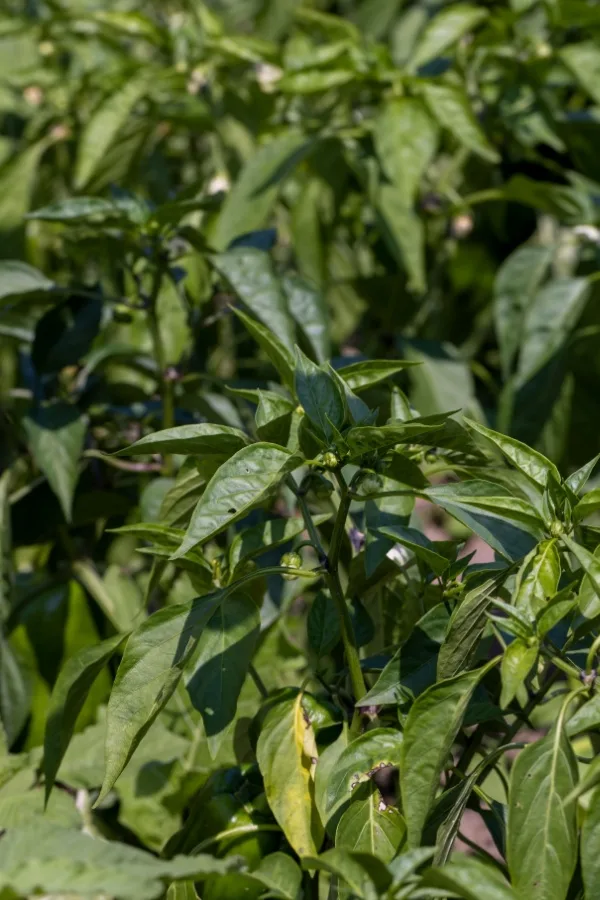Best Fertilizers for Peppers: Boost Growth and Flavor with Our Leading Picks
Best Fertilizers for Peppers: Boost Growth and Flavor with Our Leading Picks
Blog Article
Organic Vs. Synthetic Fertilizers: Which Is Best for Supporting Healthy And Balanced Pepper Plants?
In the world of supporting healthy pepper plants, the selection between organic and synthetic fertilizers stands as a crucial decision with significant implications. While both alternatives goal to supply important nutrients to support plant growth, the nuances of their effect on the soil, plant health, and the environment spark a debate that echoes throughout the gardening neighborhood. Comprehending the distinct advantages and prospective mistakes of each fertilizer type is critical for pepper cultivators seeking to enhance their yields while keeping a lasting and eco-conscious method.
Benefits of Organic Plant Foods
Organic fertilizers use an environmentally-friendly and lasting approach to nourishing pepper plants, providing essential nutrients without using artificial chemicals. These natural fertilizers are originated from organic sources such as compost, manure, bone dish, and seaweed, promoting dirt wellness and biodiversity. Unlike synthetic plant foods, natural options release nutrients gradually, guaranteeing a constant and well balanced supply for pepper plants to flourish.
One significant benefit of natural fertilizers is their ability to improve soil framework and water retention. By improving dirt wellness, organic plant foods advertise valuable microbial activity, which assists in nutrient uptake by pepper plants. Additionally, natural fertilizers minimize the danger of chemical run-off, safeguarding water sources from pollution and protecting the atmosphere.
Moreover, organic plant foods add to lasting soil fertility by promoting the development of helpful soil organisms. These microorganisms help break down raw material, launching nutrients in a form that is quickly available to pepper plants. best fertilizers for peppers. By cultivating a healthy and balanced dirt ecological community, organic plant foods support lasting pepper cultivation techniques that benefit both plants and the setting
Downsides of Synthetic Fertilizers
Synthetic fertilizers, as opposed to their natural equivalents, posture different drawbacks when made use of to nurture pepper plants, influencing both plant health and ecological sustainability. One significant downside of artificial fertilizers is their tendency to seep nutrients from the dirt rapidly. This rapid leaching can cause nutrient imbalances in the dirt, triggering plants to deal with deficiencies or toxicities. In addition, synthetic fertilizers can harm helpful soil organisms, such as earthworms and beneficial microorganisms, interrupting the dirt ecosystem's balance.
Furthermore, the overuse of synthetic plant foods can add to water pollution. Excess plant foods not soaked up by plants can wash away into water bodies, causing eutrophication, where algae flowers diminish oxygen levels in the water, harming aquatic life. Additionally, synthetic fertilizers are generally obtained from non-renewable sources, such as fossil fuels, adding to carbon emissions and environmental deterioration throughout their production.
Nutrient Absorption Comparison
When comparing artificial and organic plant foods in terms of nutrient absorption, natural fertilizers have the benefit of providing a much more well balanced and slow-release source of nutrients. Organic plant foods have a selection of macro and micronutrients that are not only useful for the plants but additionally advertise healthy dirt microbial activity, which assists in nutrient uptake.
Additionally, natural plant foods boost dirt framework and water retention capacity, allowing pepper plants to gain access to nutrients more efficiently. This enhanced soil quality assists in root advancement, enabling better this post nutrient absorption. Synthetic plant foods, although originally boosting plant growth due to their high nutrient concentrations, may prevent long-term nutrient absorption by degrading dirt health gradually.
Environmental Impact Factors To Consider

On the various other hand, artificial plant foods, although often even more instantly available and focused to plants, can have harmful results on the setting if not applied appropriately (best fertilizers for peppers). Their manufacturing calls for high power inputs, bring about greenhouse gas emissions and adding to environment change. Additionally, the drainage of excess synthetic fertilizers can pollute water resources, bring about eutrophication and harming marine ecological communities.
Finest Plant Food Practices for Peppers
To achieve this, it is important to comply with best fertilizer practices customized to the specific requirements of pepper plants. One critical practice is to do a soil test before using any type of plant foods.
Another vital technique is to fertilize pepper plants at the appropriate time. Normally, peppers profit from receiving plant food at growing and after that once more when they begin to flower. Over-fertilizing can lead to vitamins and mineral imbalances and harm the plants, so it is important to comply with recommended application rates.
In addition, selecting a well balanced plant food with an NPK proportion that fits pepper plants' requirements is basic. Organic fertilizers, such as compost or manure, can be superb options as they launch nutrients gradually and boost soil structure in index time. Artificial fertilizers can provide a fast nutrient increase when needed. Eventually, combining natural and artificial fertilizers deliberately can aid support healthy pepper plants while lessening environmental impact.
Verdict

Organic fertilizers offer a sustainable and environmentally-friendly approach to beneficial pepper plants, supplying crucial nutrients without the use of artificial chemicals. Unlike artificial fertilizers, organic choices release nutrients gradually, guaranteeing a balanced and stable supply for pepper plants to grow.
Artificial fertilizers, in comparison to their organic equivalents, position various downsides when utilized to nurture pepper plants, affecting both plant health and wellness and environmental sustainability. When contrasting artificial and organic plant foods in terms of nutrient absorption, natural plant foods have the advantage of giving a much more well balanced and slow-release source of nutrients.Moreover, natural plant foods enhance soil structure and water retention capability, enabling pepper plants to accessibility nutrients a lot more efficiently.
Report this page